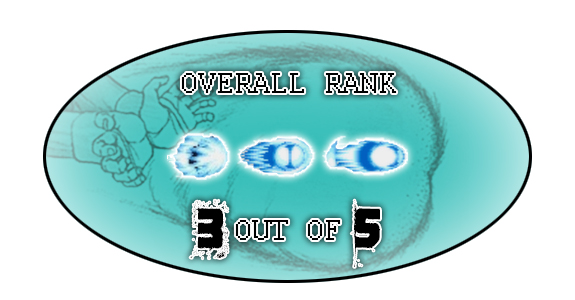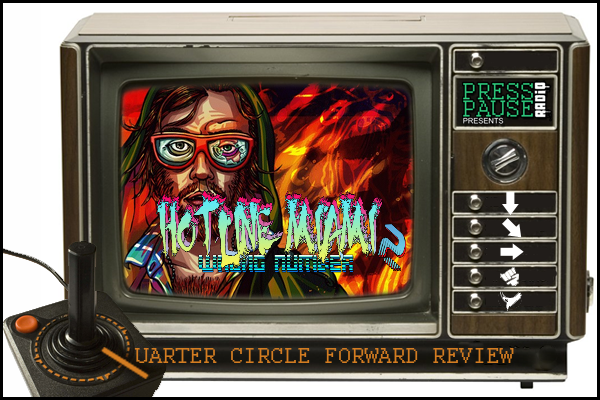
 o matter what your standpoint on the matter is, it’s a fact that’s commonly accepted by a majority of modern society; violence is a part of life. Now when it comes to how people come to terms with this is an entirely different story, but I always found the concept of depictions that revel in graphically glorifying it as a point of illustration to be interesting; especially when it worked.
o matter what your standpoint on the matter is, it’s a fact that’s commonly accepted by a majority of modern society; violence is a part of life. Now when it comes to how people come to terms with this is an entirely different story, but I always found the concept of depictions that revel in graphically glorifying it as a point of illustration to be interesting; especially when it worked.
The argument on whether or not the gory aggression worked for Hotline Miami 2 though is a bit muddled, because when it works—it works.
And when it doesn’t, the title rings a bit hollow with a reverberation of pretension.
What made Hotline Miami so appealing was that in spite the degree of difficulty it paced it’s gameplay at the fluidity that it moved with was concise yet fast, and the simplicity of it helped make the visceral romp through the criminal underworld of Miami, (and the eighties for that matter) so charming.
An adventure that was engineered more around it’s setting than its hero, which was easy considering that the nameless protagonist has little, no exposition or significant connection to what took place, he was merely an ambiguous cipher that bridged players over to the world of Hotline Miami, and honestly, the game was better for it. A minimalist story that was told more through showing than telling, much like the film it loosely muses from, 2011’s Drive.
So naturally, bound to outdo it’s predecessor, Hotline Miami 2: Wrong Number aims to up the ante by adding more meaning and exposition to everything it orchestrates, from plot, to core game mechanics, and in the process, slowly squanders the very enchantment it picked up from.
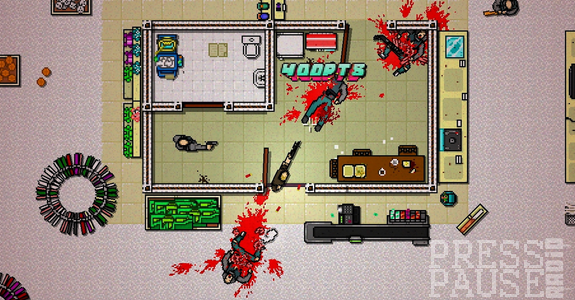
This big flaw mainly stems from the decision to filtering the campaign of Wrong Number through a series of small tales that’re a bit too disjointed from one another in presentation; like a bad Quentin Tarantino-inspired tribute film.
The media-res presentation of the bloody neon-lit sequel revolves around various characters involved with different events that transpire both before, and after the original title, adding small bits of development to the narrative of Hotline Miami’s story through numerous perspectives. The issue is while some arcs unfold into something that cohesively contributes to the plot; a majority of them really does not. While it could be said that this is something that could be overlooked, it was really hard to because Wrong Number was so obnoxious about trying to convince me to give a shit with the way they went about it.
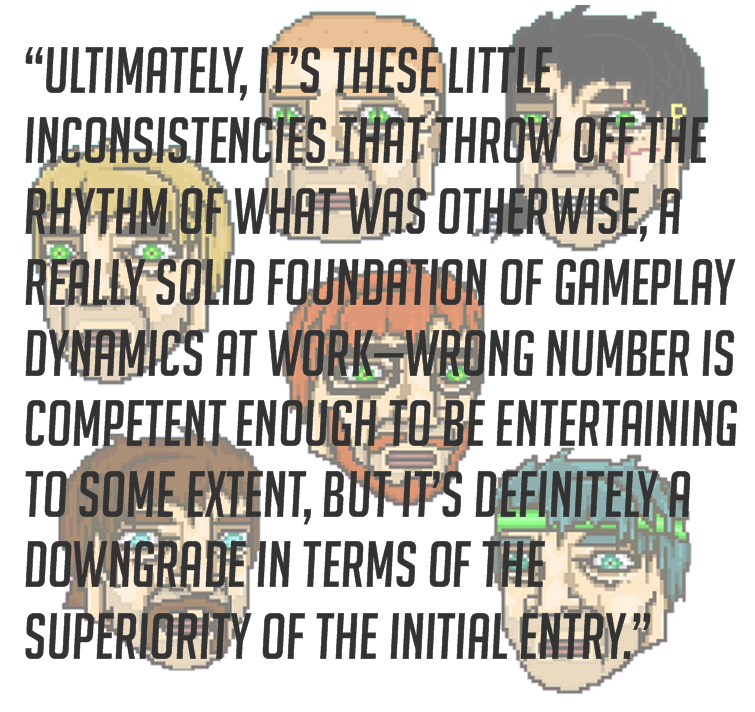 There’s a ton of dialogue and cut scenes, and exposition, like, easily triple the amount of the first Hotline Miami, and it just made the whole experience of it come a bit too bloated, and boring even.
There’s a ton of dialogue and cut scenes, and exposition, like, easily triple the amount of the first Hotline Miami, and it just made the whole experience of it come a bit too bloated, and boring even.
What’s incredibly disappointing though is that this design choice with the presentation doesn’t end up the story the most though, it’s the gameplay that suffers the biggest blow from it.
In addition to moving the story along, each character has a distinctive play-style that’s based around their characteristics that affect how the game is played, and some of it just plain isn’t fun.
The Journalist for example, uses an offense against enemies that’s completely non-lethal, merely incapacitating foes blunt force to the point where they’ll writhe in pain on the floor where you dropped them, but that also means he can’t use firearms, and will immediately unload any ammunition from a gun that’s picked up, rendering it useless.
Then there’s the Soldier, where his situation has you play infiltration missions with nothing more than a knife and a designated gun that cannot be swapped for another through the level—yes, you read right. The only thing you can do is find ammo caches within the level, and reload there, and even then, after the initial loadout containing two rounds of bullets, each visit to resupply afterwards will only stock you with one round at a time, slightly rendering you helpless the moment you begin to stray away from the ammo cache.
The familiar mask mechanic returns but only in spurts, and the selection of masks available is significantly reduced in Wrong Number, and a bit too short lived in appearance in comparison to the rest of the scenarios that’re players are ran through.
In addition to the bloat of play styles and characters, are the stages themselves, some of them are just way too long and demanding to be enjoyable. The usual rang of three to five floors per stage is increased to anywhere from five to seven, and near the latter half of the game, eight floors per level—eight, and each and every one of these sections are as relentless in difficulty, if not more than the simple killing days of Jacket. While more of a good thing is generally a logical consensus on improving or upgrading something, it’s just excessive here, and only makes the title a bit more plodding.
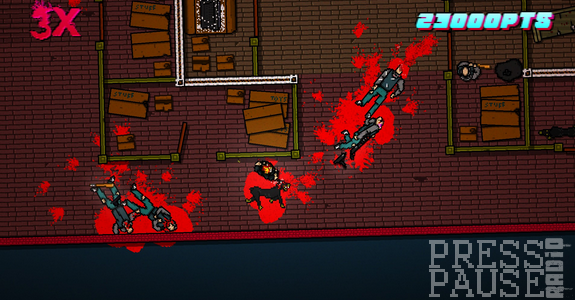
I know it sounds like I’ve been bashing the game during the majority of this review but I point them out only because the polarize what is diversely a satisfying follow-up sequel that has the capacity to deliver. Even though they’re long in the tooth, the stage design itself is top-notch and can allow for some sweet tactical experimentation against enemy mobs that make racking a kill streak particularly enjoyable.
Also, I can’t stress this enough, the soundtrack in this iteration stands among some of the best, if not the best music you’ll listen to out of a video game in 2015. The composition features a lot of new content from return artists like Perturbator, M|O|O|N, and Scattle, and other standout tracks that hit all of the feverish, fast-hitting synth beats and electronica that fit the cadence and tone of Hotline Miami’s overall theme.
Ultimately, It’s these little inconsistencies that throw off the rhythm of what was otherwise, a really solid foundation of gameplay dynamics at work. I’ll give credit where credit is due at to that Dennaton Games wanted to develop their vision of Hotline Miami into performing beyond the comfort zone of original, but the execution ends up playing better towards style than it does substance—and it’s a damn shame.
Wrong Number is competent enough to be entertaining to some extent, but it’s definitely a downgrade in terms of the superiority of the initial entry—purchase with your expectations tempered folks.
